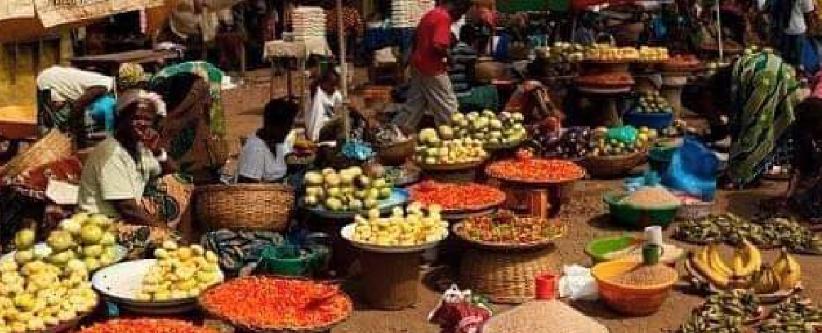Africa-Press – Sierra-Leone. World Bank report has warned that inadequate transport infrastructure is emerging as a major driver of food insecurity across Africa, with Sierra Leone named among the most at-risk countries due to its dependence on food imports and fragile logistics.
The report, “Transport Connectivity for Food Security in Africa: Strengthening Supply Chains,” finds that rising transport costs, inefficient logistics networks, and delays at ports and border crossings are significantly reducing access to staple foods across the continent. By analyzing four critical food staples, rice, maize, wheat, and cassava the World Bank highlights the extent to which transportation barriers, rather than agricultural production alone, are determining food availability.
Rice, Sierra Leone’s most consumed staple, is singled out as a particular concern. The country imports large quantities to meet domestic demand, a pattern common among coastal West African nations such as Liberia and Guinea. This reliance on global supply chains leaves Sierra Leone highly exposed to disruptions in shipping routes, congestion at the Freetown Port, and bureaucratic delays at regional borders, factors that can quickly lead to price increases or shortages.
Drawing on trade data from 2017 to 2022 excluding the peak pandemic year, the report concludes that transport delays and costs can increase food prices by up to 40%. It identifies border inefficiencies, deteriorating road networks, and underperforming ports as persistent obstacles across the continent’s food supply systems.
For Sierra Leone, the World Bank recommends that investment in transport and logistics infrastructure become an urgent strategic priority. Improvements in port facilities, road networks, and customs processes could help reduce the cost and time required to import food, thereby strengthening the country’s resilience to external shocks such as global supply chain disruptions and climate-related production volatility.
The report ultimately argues that Africa’s food security challenges are no longer limited to increasing agricultural production. Instead, it calls for governments and regional blocs to modernize transport systems, streamline cross-border trade, and invest in logistics networks as essential steps toward establishing resilient food systems.
With food prices rising globally and climatic conditions becoming increasingly unpredictable, Sierra Leone’s policymakers are now faced with a critical choice: overhaul transport bottlenecks or risk worsening food insecurity in the years ahead.
For More News And Analysis About Sierra-Leone Follow Africa-Press






